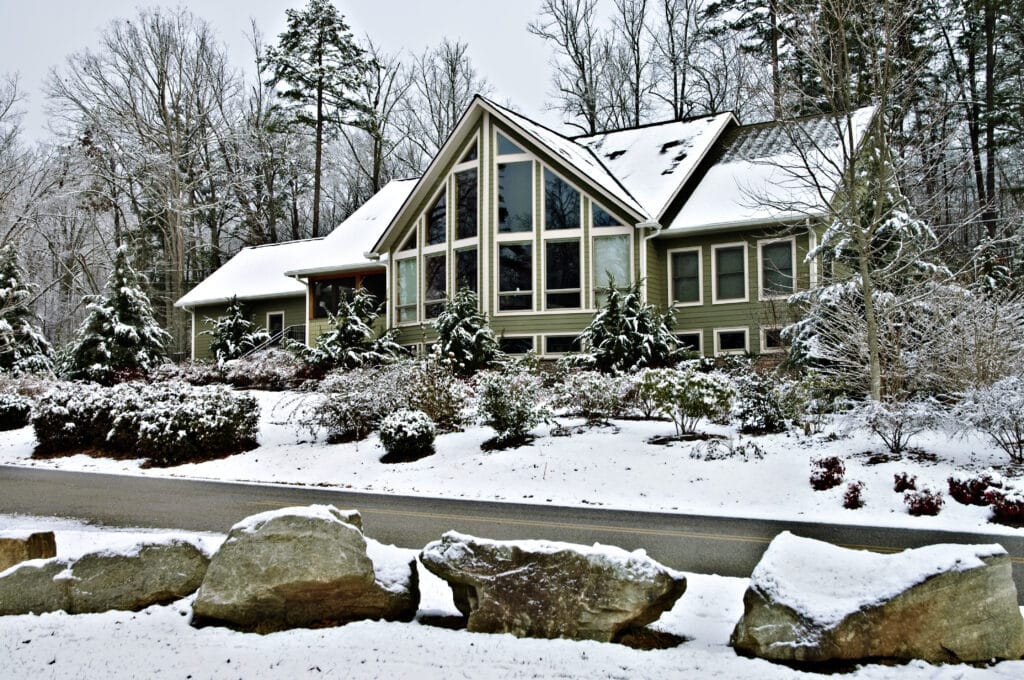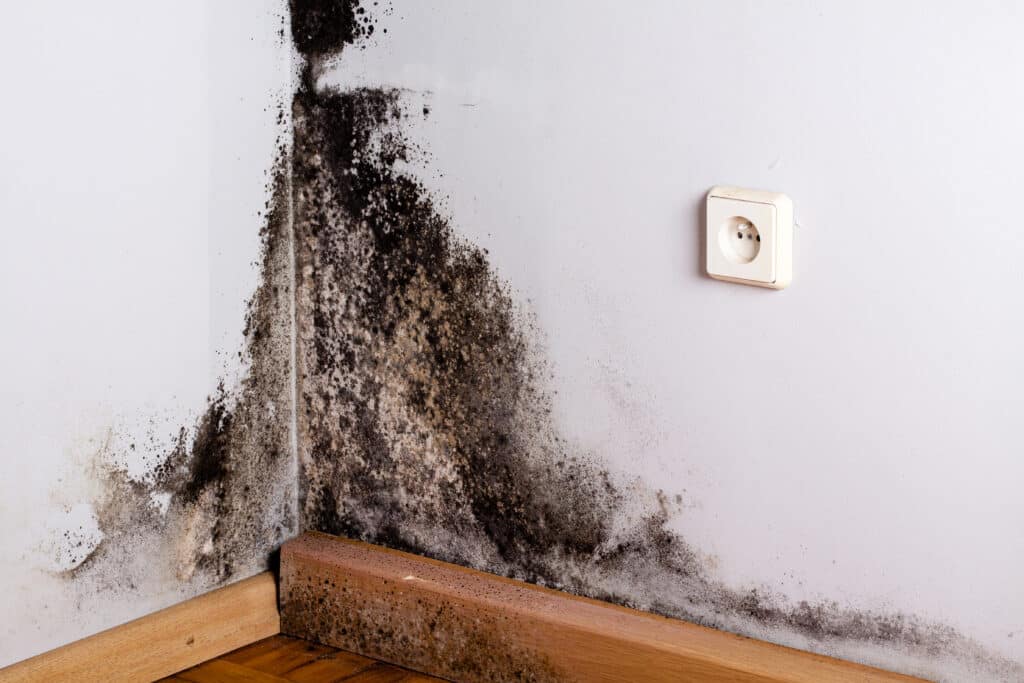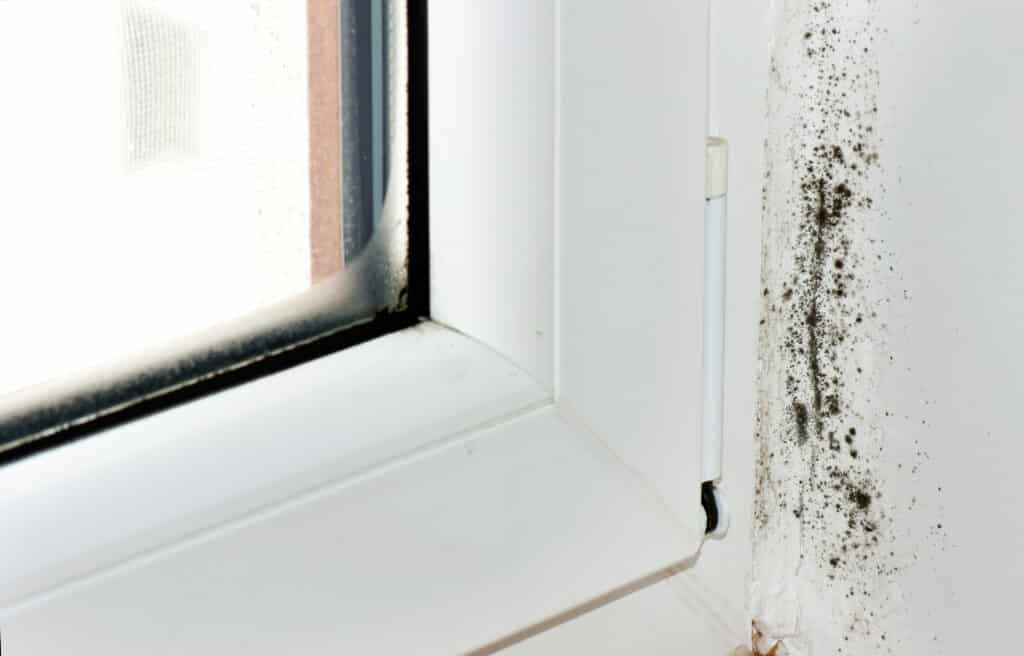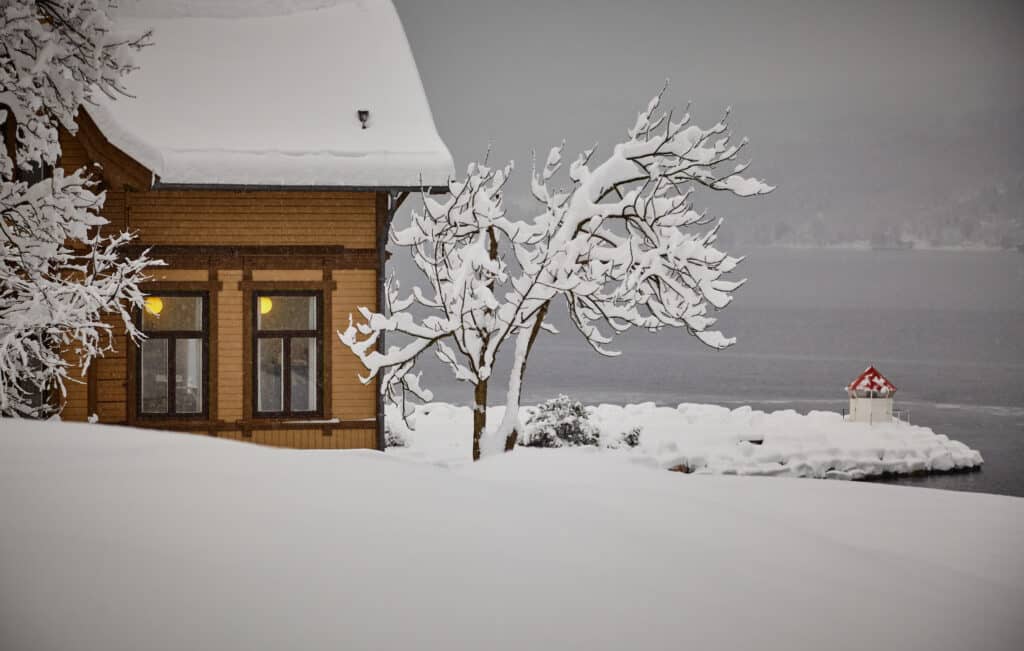
As the days grow colder, you may find yourself bundling up and enjoying the warmth your home provides. However, while you are enjoying freshly fallen snow and time spent with family, your home may experience an unexpected intrusion. Winter may be the perfect time for mold to find a warm refuge in your home.
In fact, mold in the winter presents several unique challenges for homeowners, and it is essential that you know how to tackle them if you would like to keep your home safe. Our team at Liberty Restoration has answered some of your most common questions about mold in the winter so you can keep your home and family safe this winter season.
1. Can Mold Grow In Cold Weather?
When you think about mold growth, you might think of a warm, humid environment. You may even believe that mold isn’t capable of growing if the weather is colder. However, it is important to understand that the growth of mold in the winter isn’t uncommon. Most mold can grow in temperatures as low as 40°F. If you live in a place that doesn’t often reach temperatures below that, you may deal with mold in the winter.
However, even if you live in a place that gets colder than 40°F, you may still need to worry about mold. What mold needs more than anything is moisture. Moisture accumulation in your home isn’t uncommon during the winter months and may lead to mold spreading throughout your home, even when you least expect it. Even if the conditions are less than ideal, mold spores may simply go dormant and wait for conditions to improve before spreading.

2. How Can You Prevent Mold In The Winter?
If you want to avoid mold, there are a few things you should do. You may want to invest in a dehumidifier to keep moisture levels in your home between 30% and 50%. This dehumidifier removes excess moisture the mold spores latch onto. Additionally, repair any leaks you may experience in the winter.
It isn’t uncommon to deal with burst pipes in the winter, which are the perfect breeding grounds for mold. Address this as soon as possible to avoid mold in the winter. You should also avoid overfilling rooms and closets. When they are overcrowded, rooms and closets hold onto more moisture, which can lead to mold development.
3. Will Cold Weather Kill Existing Mold?
You may believe that cold weather is capable of killing existing mold on and around your home. However, cold weather cannot kill mold. As we stated above, if conditions aren’t ideal for mold growth, the mold spores don’t die. Instead, they go dormant until conditions improve. Once the weather improves, they will begin to spread again.
If you are dealing with mold in your home, don’t leave it unaddressed. It is essential that you remove the mold as quickly as possible to keep your family safe. Waiting for the cold weather to kill it is like fighting a losing battle and will only leave you more frustrated.
4. Can Window Condensation Lead To Mold Growth?

Many places see an increase in precipitation during the winter months. However, as this precipitation meets a cool surface, like those of your windows, it may lead to an increase in condensation. If you deal with condensation on your windows, don’t think you are safe from mold in the winter.
Window condensation is the perfect environment for mold, meaning you may notice it growing on your windowsill and seals around the window. This mold growth can quickly spread beyond your window, so it is important that you address this as soon as possible.
5. What Are The Health Risks From Mold Exposure?
Much like throughout the rest of the year, there are many risks associated with exposure to mold in the winter. If left unaddressed, mold exposure can lead to some incredibly detrimental health problems. If you are exposed to mold in the winter, you may notice an increase in allergy-like symptoms, including coughing, sneezing, red eyes, and a runny nose.
After prolonged exposure to mold, individuals with respiratory illnesses like COPD and asthma may notice exacerbated symptoms. Prolonged exposure to mold in the winter may also lead to symptoms including insomnia, memory loss, and trouble concentrating. If you are experiencing any of these symptoms, it is best that you seek treatment from your doctor, who may run tests to verify mold exposure.

Call The Experts To Treat Mold In The Winter
If you are dealing with mold in the winter, it is essential that you contact a professional as soon as possible to keep your home and loved ones safe. At Liberty Restoration, our team of experts is prepared to tackle any mold problem in your home, no matter how big or small. With years of experience under our belt, we are confident that we can clear away this mold problem quickly and leave you to enjoy your home once again.
If you are dealing with mold in the winter and would like to schedule mold remediation for your home, contact our team today.
